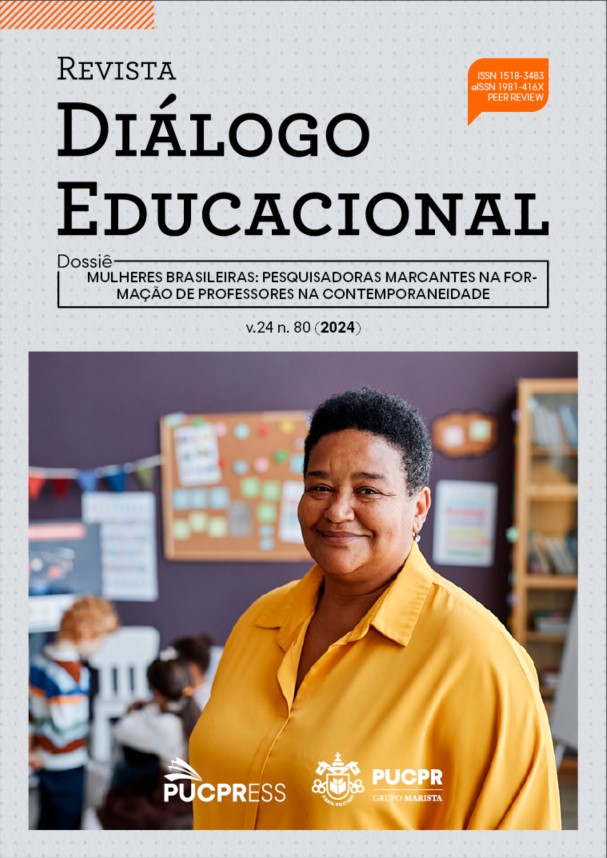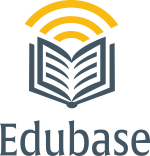Algumas considerações sobre o Philosophiae Doctor e o plágio acadêmico
DOI:
https://doi.org/10.7213/1981-416X.24.080.AO05Resumo
A integridade, boas práticas e condutas na pesquisa se constituem, hodiernamente, cada vez mais arraigadas e integrantes de uma atitude acadêmica responsável. No lócus acadêmico uma pesquisa de doutorado, por exemplo, não pode prescindir de fatores de ordem do ineditismo e que asseveram uma pesquisa original. Nesses termos, o presente trabalho discute a noção de plágio, sem negligenciar elementos de gênese e evolução ao decurso dos últimos séculos e novas políticas de prevenção científica. Ademais, atendo-se ao exame do papel do Philosophiae Doctor (PhD), discute também novas modalidades emergentes de pesquisa, como, por exemplo, o caso do (PhDP) por publicação. Finalmente, o trabalho ampara uma compreensão não trivial entre categorias emergentes de manifestação do plagio, diante de relações acadêmicas não estáticas e características de uma pesquisa de doutorado.
Downloads
Referências
AIRES, J. P. Análise de plágio em teses e dissertações dos programas de pós-graduação na área de ensino no período de 2010 a 2012. (tese de doutorado), Ponta Grossa: UFTPR, 2017.
AIRES, J. P. O plágio e a integridade em pesquisa: uma revisão sistemática no Brasil. Revista Ensino & Pesquisa, v. 17, nº 2, 125 – 145, 2019.
ANGELIL-CARTER, S. Stolen Language? Plagiarism in Writing. Essex: Pearson Education Limited, 2000.
BADLEY, G. Publish and be doctor-rated: the PhD by published work, Quality assurance in Education, v. 17, nº 4, 331- 342, 2009.
BARNHART, R. K. (Ed.) Chambers Dictionary of Etymology (Edinburgh, Chambers), 1988.
BAYARD, P. Publish and be doctor-rated: the PhD by published work. Quality Assurance in Education, v. 17, nº 4, 331 – 342, 2015.
BERLINCK, R. G. S. The academic plagiarism and its punishments - a review. Revista Brasileira de Farmacognosia, v. 21, n. 3, 2011.
BETANCOURT. N.; JOCHEM; T; OTNER. S. M. G. Standing on the shoulders of giants: How star scientists influence their coauthors. Research Policy, v.25, nº 1, 1 – 1, 2023.
BRETAG, T. Defining Academic Integrity: International Perspectives – Introduction. In: BRETAG, T. (Eds). Handbook of Academic Integrity (pp. 3 – 7), Singapore: Springer, 2016.
BRETAG, T., & MAHMUD, S. A model for determining student plagiarism: Electronic detection and academic judgement. Journal of University Teaching & Learning Practice, 6, 49–60, 2009.
BRIEN, D Publish or perish? Investigating the doctorate by publication in writing. Proceedings of the 13th Conference of the Australian Association of Writing Programs, University of Technology, Sydney, 2008.
BOURDIEU, P. Homo academicus. Argentina: Les edicion Minuit, 1984.
DEUBEL, P. Punishment or Policy Change: A Case of Plagiarism in a Dissertation. Journal of Educational Research and Practice, v 8, nº 1, 101 – 112, 2018.
ELIOT, T. S. The Sacred Wood: Essays on Poetry and Criticism. London: Meutheun and Co. 1922.
LEDUC, M. et. al. Réflexion éthique sur le plagiat dans la recherche scientifique, Centre National de Recherche Scientifique (CNRS), 1 – 18, 2017.
FERREIRA; M. M; PERSIKE, A. O tratamento do plágio no meio acadêmico: o caso USP, Revista Signóstica, v. 26, nº 2, 519 – 540, 2014.
HART, A. G. If you can lose a driving licence, why not a PhD? Nature, v. 430, nº 503, 1 – 2, 2004.
HODDELL, S., STREET, D., WILDBLOOD, H. Doctorates: converging or diverging patterns of provision”, Quality Assurance in Education, v. 10, nº 2, 61-70, 2002.
JALONGO, M. R.; SARACHO, O. N. Writing for Publication Transitions and Tools that Support Scholars’ Success. New York: Springer, 2016.
JAMIESON, S. Is It Plagiarism or Patchwriting? Toward a Nuanced Definition. In: BRETAG, T. (Eds). Handbook of Academic Integrity (pp. 503 – 518), Singapore: Springer, 2016.
JUDENSNAIDER. I. Um olhar histórico à questão da cópia e do plágio. Revista Querubim – revista eletrônica de trabalhos científicos nas áreas de Letras, Ciências Humanas e Ciências Sociais – Ano 07 Nº 15 vol. 1. 161 – 189, 2011.
KROKOSCZ, M. Plagiarism in articles published in journals indexed in the Scientific Periodicals Electronic Library (SPELL): a comparative analysis between 2013 and 2018, International Journal for Educational Integrity, v. 17, nº 1, 2021.
LATOURETTE, A. W.. Plagiarism: Legal and ethical implications for the university. The Journal of College and University Law, 37, 1–91., 1 – 22, 2010.
LINDBERG, D. C.. The Beginnings of Western Science Th e European Scientifi c Tradition in Philosophical, Religious, and Institutional Context, Prehistory to a.d. 1450. Chicago: Th e University of Chicago Press, 2007.
MAURER H, KAPPE F, ZAKA B.. Plagiarism - a survey. J Univ Comp Sci 12: 1050-1084, 2006.
MITCHELL. T.; CARROLL. J. Academic and research misconduct in the PhD: Issues for students and supervisors. Nurse Education Today, v. 28, nº 3, 218 – 226, 2008.
MOORE, J. C. A brief History of Universities, New York: Springer, 2019. 131, 2019.
NERAD, M.; EVANS, B. The Continuing Evolution of the Research Doctorate. In: Globalization and Its Impacts on the Quality of PhD Education (pp. 8 – 29). Boston: Sense Publishers, 2014.
NOBLE, K. Changing Doctoral Degrees: an international perspective (Buckingham, Society for Research into Higher Education and Open University Press. 1994.
OLIVEIRA, E. C. Autoria de documentos para a WEB semântica: um ambiente de produção de conhecimento baseado em ontologias. (tese de doutorado). Brasília: UNB, 2006.
ÖSTLING. J. Humboldt and the modern German university An intellectual history, Sweden: Lun University Press, 2018.
PARK, C. In Other (People’s) Words: plagiarism by university students—literature and lessons, Assessment & Evaluation in Higher Education, v. 28, nº 5, 471 – 486, 2003.
PEACOCK. S. The PHD by publication. International Journal of Doctoral Studies, 12, 123-134, 2017.
PENELOPE, P. N. & CAROLYN, C. G. PhDs by publications: an ‘easy way out’?, Teaching in Higher Education, 17:1, 105-111, 2012.
PENNYCOOK, A. Borrowing others’ words: text, ownership, memory, and plagiarism. TESOL Quart 30: 201-230, 1996.
POWELL, S. The Award of the PhD by Published Work, UK Council for Graduate Education, Lichfield, 2004.
RENAUT, L.. Le tatouage des hommes libres aux ive et v e siècles de notre ère », Histoire et sociétés, 16, 11-27 2011.
RESNIK, D. B. The Ethics of Science: An Introduction. London: London and New York, 1998.
RUSSO, M.. Ética e integridade na Ciência: da responsabilidade do cientista à responsabilidade coletiva. Estudos avançados, v.28 n.80, abr. 2014.
RÜEGG, W. A History of the university in Europe: Universities in the nineteenth and early twentieth centuries, v. iii, Cambridge: Cambridge University Press, 2004.
SELEMANI, A.; CHAWINGA, W. D.; E DUBE, G. Why do postgraduate students commit plagiarism? An empirical study. International Journal for Educational Integrity, v. 14, nº 7, 1 – 15, 2018.
SIMONNOT, B. Le plagiat universitaire, seulement une question d’éthique ? Revue Question de communications, v. 26, nº 3, 219 – 234, 2014.
SCHUYT, K. Scientific Integrity: The Rules of Academic Research. Chicago: University of Chicago Press, 2019.
VAUX, D. L. Scientific Misconduct: Falsification, Fabrication, and Misappropriation of Credit. In: BRETAG, T. (Eds). Handbook of Academic Integrity (pp. 3 – 7), Singapore: Springer, 2016.
WAGER, E. Defining and responding to plagiarism. Learned Publishing, 27: 33–42, 2014.
WAGNER, M, PORTO, M.; TSVETKOVA, N. The final oral examination, In: The Experience of Examining the PhD An International Comparative Study of Processes and Standards of Doctoral Examination, London: Routledge. (pp. 45 - 55), 2023.
WEBER-WULFF. False Feathers: A Perspective on Academic Plagiarism, New York: Springer, 2014.
WILSON, K. Quality assurance issues for a PhD by published work: a case study”, Quality. Assurance in Education, v. 10 No. 2, pp. 71-8, 2002.
.
Downloads
Publicado
Como Citar
Edição
Seção
Licença
Copyright (c) 2023 Editora Universitária Champagnat

Este trabalho está licenciado sob uma licença Creative Commons Attribution 4.0 International License.
O(s) autor(es) transfere(m), por meio de cessão, à EDITORA UNIVERSITÁRIA CHAMPAGNAT, pessoa jurídica de direito privado, inscrita no CNPJ/MF sob o n.º 76.659.820/0009-09, estabelecida na Rua Imaculada Conceição, n.º 1155, Prado Velho, CEP 80.215-901, na cidade de Curitiba/PR, os direitos abaixo especificados e se compromete a cumprir o que segue:
- Os autores afirmam que a obra/material é de sua autoria e assumem integral responsabilidade diante de terceiros, quer de natureza moral ou patrimonial, em razão de seu conteúdo, declarando, desde já, que a obra/material a ser entregue é original e não infringe quaisquer direitos de propriedade intelectual de terceiros.
- Os autores concordam em ceder de forma plena, total e definitiva os direitos patrimoniais da obra/material à EDITORA UNIVERSITÁRIA CHAMPAGNAT, a título gratuito e em caráter de exclusividade.
- A CESSIONÁRIA empregará a obra/material da forma como melhor lhe convier, de forma impressa e/ou on line, inclusive no site do periódico da EDITORA UNIVERSITÁRIA CHAMPAGNAT, podendo utilizar, fruir e dispor do mesmo, no todo ou em parte, para:
- Autorizar sua utilização por terceiros, como parte integrante de outras obras.
- Editar, gravar e imprimir, quantas vezes forem necessárias.
- Reproduzir em quantidades que julgar necessária, de forma tangível e intangível.
- Adaptar, modificar, condensar, resumir, reduzir, compilar, ampliar, alterar, mixar com outros conteúdos, incluir imagens, gráficos, objetos digitais, infográficos e hyperlinks, ilustrar, diagramar, fracionar, atualizar e realizar quaisquer outras transformações, sendo necessária a participação ou autorização expressa dos autores.
- Traduzir para qualquer idioma.
- Incluir em fonograma ou produção audiovisual.
- Distribuir.
- Distribuir mediante cabo, fibra ótica, satélite, ondas ou qualquer outro sistema que permite ao usuário realizar a seleção da obra ou produção para recebê-la em tempo e lugar previamente determinados por quem formula a demanda e nos casos em que o acesso às obras ou produções se faça por qualquer sistema que importe em pagamento pelo usuário.
- Incluir e armazenar em banco de dados, físico, digital ou virtual, inclusive nuvem.
- Comunicar direta e/ou indiretamente ao público.
- Incluir em base de dados, arquivar em formato impresso, armazenar em computador, inclusive em sistema de nuvem, microfilmar e as demais formas de arquivamento do gênero;
- Comercializar, divulgar, veicular, publicar etc.
- Quaisquer outras modalidades de utilização existentes ou que venham a ser inventadas.
- Os autores concordam em conceder a cessão dos direitos da primeira publicação (ineditismo) à revista, licenciada sob a CREATIVE COMMONS ATTRIBUTION LICENSE, que permite o compartilhamento do trabalho com reconhecimento da autoria.
- Os autores autorizam a reprodução e a citação de seu trabalho em repositórios institucionais, página pessoal, trabalhos científicos, dentre outros, desde que a fonte seja citada.
- A presente cessão é válida para todo o território nacional e para o exterior.
- Este termo entra em vigor na data de sua assinatura e é firmado pelas partes em caráter irrevogável e irretratável, obrigando definitivamente as partes e seus sucessores a qualquer título.
- O não aceite do artigo, pela EDITORA UNIVERSITÁRIA CHAMPAGNAT, tornará automaticamente sem efeito a presente declaração.













